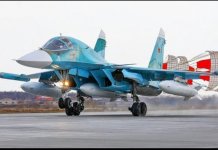Sierra Leone has cancelled the development of an airport project under the Chinese BRI scheme which was to be constructed outside the capital, Freetown. This is for the first time that an African country has cancelled any Chinese BRI project. Sierra Leone is a developing country but has pulled out the chords from China’s $318-million project, much to the Beijing’s shock.
- How India Won Bangladesh and Lost Kashmir in 1971: Kashmir Dispute
- 36,000 People Evacuated from Border, Are India and Pakistan Heading for a War?
The World Bank and the International Monetary Fund (IMF) both cautioned Sierra Leone that the Chinese project may bring redundant debt weight on them. The mega-project had been authorized by former Sierra Leone president, Ernest Bai Koroma which, which was due to be completed in 2022 but, with the change in government the new president, Julius Maada Bio, has since reconsidered the huge loans offered by China to his predecessor.
“After serious deliberations, it is the Government’s view that it is extravagant to continue with the construction of the new airport when the existing one is grossly under-utilized,” said a letter from the country’s Minister of Transport and Aviation to the project’s director.
African countries collectively owe approximately $130 billion to China, according to the China-Africa Research Initiative. This amount has been used to fund transport, power and mining projects in the resource-rich continent. Earlier this year, during China-Africa Cooperation (FOCAC) summit, Chinese President Xi Jinping declared a further $60 billion in economic assistance to Africa.
Philippine Daily Inquirer reported, “Countries around the world are anxious now that they could fall prey to Beijing’s debt-trap discretion. They are considering the readily available loans accessible by China for infrastructure projects in their countries.
China funded projects terms and conditions also require the hiring of Chinese-owned contractors rather than local companies and workers. Chinese loans, with interest rates of 2-3 per cent, are 1,100 per cent more expensive than those from Japan, at only 0.25-0.75 per cent”.





